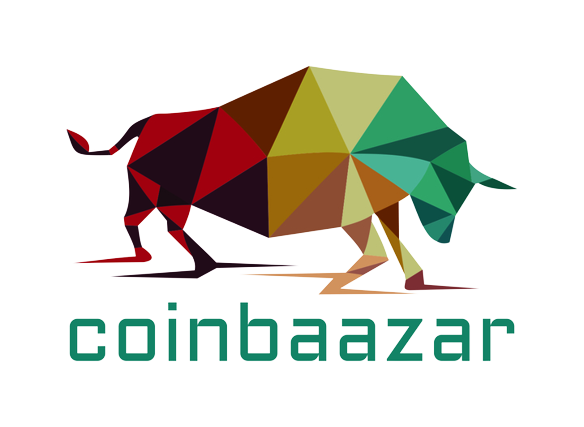About Bitcoin
Bitcoin, the world’s first cryptocurrency, is stored and transferred securely over the internet via a blockchain, a digital record. Bitcoins are divided into smaller units called satoshis, which are worth 0.00000001 bitcoins each.
What is the mechanism behind Bitcoin?
Satoshi Nakamoto, a completely anonymous individual or group, developed Bitcoin in a white paper published in 2008. Bitcoin is a simple concept: it’s digital money that allows for safe peer-to-peer Internet transactions.
Bitcoin’s creation marked a watershed moment in cryptography. The blockchain, a piece of software that functions as a ledger, logging every bitcoin transaction ever done, was Bitcoin’s most significant breakthrough. The Bitcoin blockchain, unlike a bank’s record, is distributed and validated over a network of computers. It is not under the control of any company, country, or third party. That network can be joined by anyone.
Bitcoin is founded on cryptography, which makes it incredibly safe and accessible to everyone. When you create a “bank account” on the worldwide Bitcoin network, you get an extraordinarily long password, also known as a “private key,” that no one else can guess. Using the public version of their key, anyone with Internet access can receive, send, and store Bitcoin (i.e. the version of their private key that can be freely shared in order to securely receive funds).
Only 21 million BTC will ever exist. Bitcoin is a digital currency that can’t be manipulated or inflated by anybody, including governments and central banks.
Bitcoin has a great divisibility. Fractions of a BTC can be held, sent, or received. A “satoshi” or “sat” is the smallest unit of Bitcoin, equal to 0.00000001 BTC. The ease with which bitcoin can be divided has become a critical feature as its value has climbed.
What is Bitcoin mining, and how does it work?
Bitcoin is frequently referred to as a “store of value,” similar to gold, and new bitcoins are created via “mining” (up to a maximum 21 million coins).
Bitcoin mining is a process in which thousands of computers compete around the world to record and verify network transactions. Mining rigs are specialised computers that run the equations needed to validate and record a new transaction.
In the beginning, a standard desktop PC was powerful enough to participate, allowing anyone who was interested to try their hand at mining. However, today’s computers are big, specialised, and frequently owned by businesses or large groups of people pooling their resources. According to Cambridge University researchers, U.S.-based miners account for the biggest percentage of worldwide mining by country as of October 2021.
Who is the inventor of Bitcoin?
The concepts of Bitcoin were first disclosed online in late 2008 by a person or group known as Satoshi Nakamoto in a white paper.
This wasn’t the first paper to propose a digital currency based on cryptography and computer science—in fact, the paper referred to earlier ideas—but it was a particularly elegant solution to the problem of establishing trust between different online entities, where people may be hidden behind pseudonyms (like bitcoin’s creator) or physically located on the other side of the world.
The bitcoin private key and the blockchain ledger are two interwoven concepts created by Nakamoto. You control bitcoin with a private key, which is a string of randomised numbers and letters that unlocks a virtual vault storing your purchase. Each private key is recorded on the blockchain, a distributed ledger.
Satoshi’s true identity has never been discovered, and is unlikely to be revealed in the future. Bitcoin’s value proposition is based on the fact that it is not controlled by a single person or entity.
What gives Bitcoin its worth?
The value of Bitcoin is determined by factors such as:
A monetary supply that is fixed and predictable. Unlike fiat currency (government-backed money), no elected or unelected authority may produce more Bitcoin on the fly or in the billions. Only 21 million Bitcoins will ever exist.
Unlike fiat currency, Bitcoin is based on open-source code and is completely transparent around the world. Anyone may verify the total Bitcoin supply and its underlying code, as well as the balances of each account on the global ledger, at any moment.
Bitcoin is protected by state-of-the-art cryptography and is supported by massive quantities of electricity. To break Bitcoin’s primary encryption, an individual or group would need unimaginable quantities of energy, sophisticated computers, and space. Bitcoin is the world’s most secure computing network.
The Bitcoin network may be accessed by anybody, anywhere, unlike traditional bank accounts. Bitcoin is a censorship-resistant, worldwide network for exchanging value.
Bitcoin will have value as long as the following features are valuable to people all over the world.
How to Buy Bitcoin?
To buy, send, and receive Bitcoin, you can open an account with coinbaazar or one of the many other respected financial technology companies. Bitcoin is also becoming more accessible through regular financial portfolios; for example, the first Bitcoin futures-based ETF was approved in October 2021. (ETFs, or exchange-traded funds, are a popular way for investors to obtain exposure to assets such as gold, technology companies, and now Bitcoin.)
This week, Bitcoin is on the fall.
Bitcoin’s price has dropped 0.49 percent in the last seven days. In the last 24 hours, the price has dropped 6.04 percent. The price has dropped 0.43 percent in the last hour. The current price of BTC is 2,311,786.27195. Bitcoin is currently trading at $5,337,420.023619, down 56.69 percent from its all-time high.
There are currently 19,055,837 BTC in circulation.
Bitcoin’s social media presence.
On May 31, 2022, Bitcoin was mentioned in 385,457 of 1,957,238 social media postings on Twitter and Reddit. Bitcoin is being discussed by 228,502 distinct people, and it is now ranked first in terms of most mentions and activity from collected posts.

